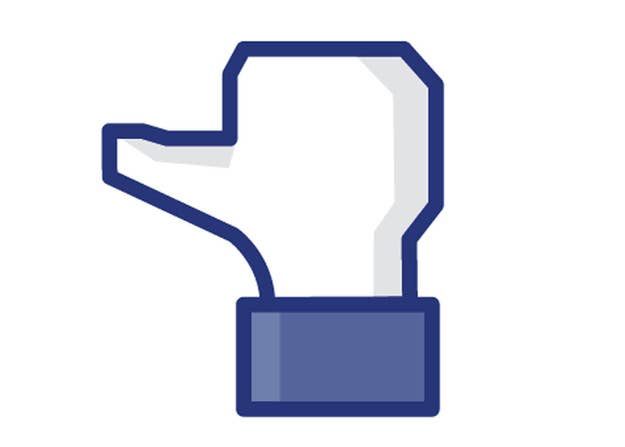
If you are a site that exists on the World Wide Web, it's a truism that more Facebook fans and "likes" for your site is more better. Because, obviously, more fans and more likes for your site means more engaged users who click on more things, which means more traffic coming from Facebook which means more traffic. So you hold contests, advertise, and market market market to get readers to like your Facebook page.
This truism is, in fact, not true at all.
(Some quick background: The BuzzFeed Network, if you weren't aware, is a set of sites like TMZ and The Daily Mail that altogether have over 300 million users a month, and every month BuzzFeed publishes a Social Intelligence Report that draws on data gathered from this network, and is available only to members of the network.)
What BuzzFeed's data scientist, Ky Harlin, and analyst, Aswini Anburajan, found by looking at publishers' Facebook fans and comparing them to the total number of Facebook referrals that those publishers received in July is that there is "little to no correlation between the number of fans a publisher has and increased rates of referral traffic."

To get more specific, 71 percent of the publishers in the BuzzFeed network whose sites had fewer than 300,000 Facebook fans and fewer than 300,000 Facebook referrals last month — these sites received on average 3 Facebook referral pageviews per Facebook fan. Buuuut with a standard deviation of 4, some publishers were getting fewer than 1 pageview per fan, while some were getting as many as 7. So, some sites were getting a lot of referral traffic per fan; others not so much.
In other words, just because somebody likes a website's page on Facebook doesn't mean they're engaged with the website and clicking on the content posted on Facebook. This suggests that there are high quality "likes" and low quality "likes," like any other kind of traffic (or, less probably, some fans are so devoted they never access site content through Facebook, they go to it directly). Either way, it casts something of a shadow over the macrotrend of the last couple of years where websites and brands have relentlessly driven their Facebook fan counts at all costs. Facebook fans, it turns out, aren't a magic traffic bullet.
Not that Facebook fans aren't valuable: Having more Facebook fans does spread sites' content across more people's newsfeeds, and the likes on actual content does directly translate to more sharing. So, likes on content = referral traffic; likes on generic site pages = whatevs.
In other other words, the half-life of a like is very short: It doesn't mean so much for brands or sites general pages that last and last and last. But they mean a whole lot for oh-so-ephemeral pieces of content. Because that's what people actually share.
